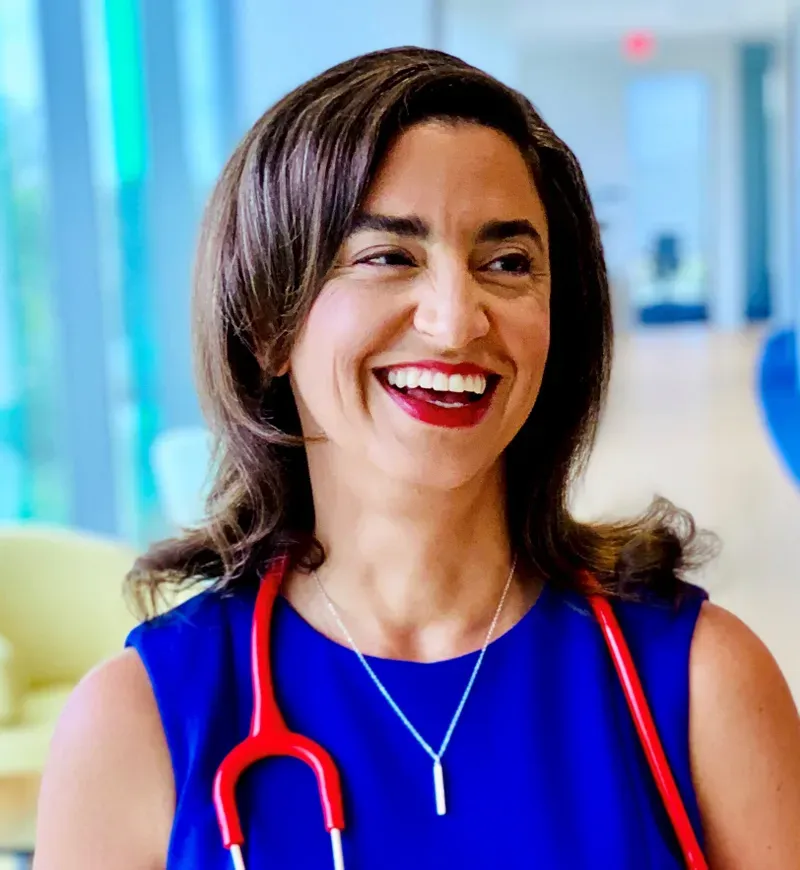(WBBM NEWSRADIO) -- As everyone prepares to gather with family and friends, do lots of holiday shopping, and attend parties and events to ring in the season, it's important to keep in mind that multiple viruses are on the rise and parents with babies should be cautious.
Dr. Shelly Vaziri Flais is a pediatrician with Pediatric Health Associates in Naperville, serves as Assistant Professor of Clinical Pediatrics at Northwestern University's Feinberg School of Medicine and is the author of several parenting books including "Raising Twins, Parenting Multiples From Pregnancy Through the School Years". And she has some tips for parents on how to get through the holidays with little ones safely.

COVID, RSV and flu cases are on the rise and as people prepare to attend holiday gatherings, what precautions do they need to take in order to protect their babies?
My pediatric clinical practice has been seeing many cases of influenza, RSV, and COVID this month already. Wintertime upper respiratory viruses thrive during the holidays as people tend to gather indoors in larger numbers than usual and in enclosed spaces.
Parents of infants need to know that babies under a year of age, especially if born early, are particularly susceptible to these infections. What could simply be a "bad cold" for an adult could land an infant in the hospital or the intensive care unit.
Handwashing is an important and often overlooked means to reduce the spread of illness. People exhibiting symptoms of illness should stay home and avoid gatherings to reduce the spread of germs.
Why is RSV particularly dangerous for babies?
RSV and truly other winter cold respiratory viruses impact infants differently than older kids and adults, especially if the baby was born prematurely. The virus can lead to a lower lung infection called bronchiolitis which can cause respiratory distress. More severe cases of bronchiolitis means the baby cannot get a proper level of oxygen and may become dehydrated.
Do you recommend that babies get a flu shot and the COVID vaccine?
Yes. Infants 6 months and older are recommended to receive influenza and COVID protection. I use the seat belt analogy: wearing a seat belt minimizes complications should you find yourself rear-ended while driving a car. Similarly, no one plans on getting influenza. If you do, the influenza vaccine boosts the immune system such that complications such as requiring the ER, hospital, or intensive care unit are less likely.
Also new this year is the RSV vaccine, although sadly the manufacturer is not supplying pediatricians' offices with further supply for the '23-'24 winter season. Families with infants, especially if born early, should ask their pediatrician if their infant is eligible for RSV protection. I take care of several pairs of infant twins born prematurely, and I and their parents were thrilled to give the babies a safe, effective way to minimize illness. I just wish the RSV vaccine were more readily available.
While spending time with family during the holidays, should parents not allow others to hug, kiss, or even hold their babies?
Cold and upper respiratory viruses are simply more common in December and the winter months; there is no way around that fact. Also true is that we may be in the early days of a virus and not yet realize we are sick. Parents of infants shouldn't have to ask other grownups to not kiss their babies' faces in the wintertime, but they likely will need to.
There are plenty of ways to support families with young babies other than making physical contact with the baby. In fact, keeping the infant safe from illness is the best way we can show love!
Should parents request family members to wear a mask while around younger infants especially newborns?
This is a family decision. I would be concerned that mask wearing may embolden a relative with cold symptoms to continue to socialize in person. Handwashing remains just as important, as well as staying home if exhibiting signs of illness.
This may be a bit difficult for some, but do you think that parents with newborns and younger infants should just skip the holiday parties, gatherings, and outings for safety reasons?
Every family has to make their own decisions. Often new parents feel pressured from grandparents and extended family to make the social rounds. Certainly when my own 4 kids were younger, we would cut an outing short if we saw that the people present showed signs of illness. The pediatrician mantra is "Safety First."
If a baby does show symptoms of RSV, COVID, or the flu, what steps do parents need to take?
Fever in an infant less than 3 months old is serious and the family should talk to their pediatrician to have the child evaluated and determine next steps. When infants drink breast milk or formula, they must breathe through their nose, so some babies show us they are developing respiratory problems by refusing to drink or drinking less than usual.
Parents can monitor their infants' hydration status by monitoring wet diapers. For older babies, fever over 101 for more than 48 hours is worrisome for a secondary complication, and these babies must receive a medical evaluation. Something I always tell my patients' parents is: "You know your child better than anyone. If you have a gut feeling that something is off, we want to know. Please call us."
